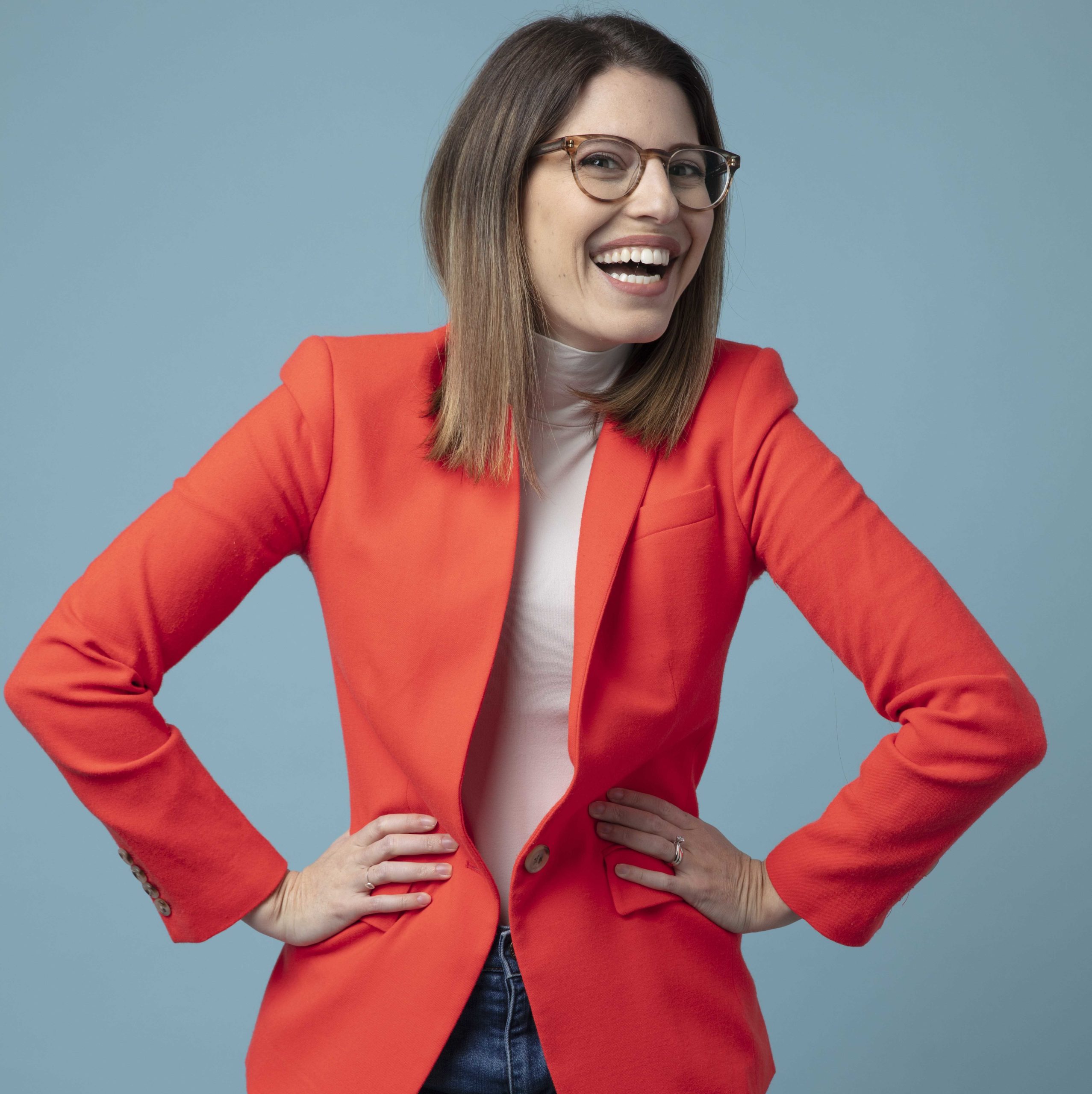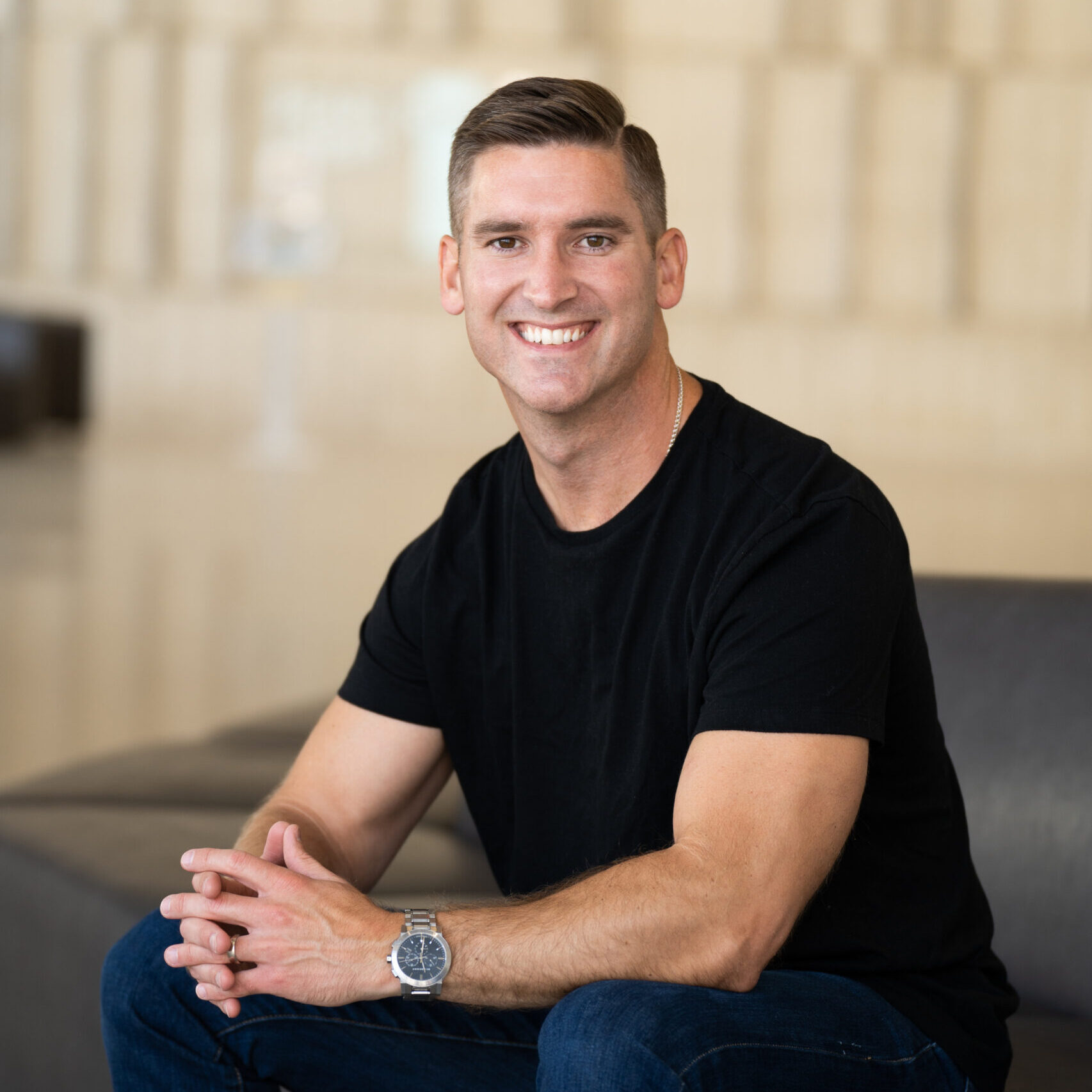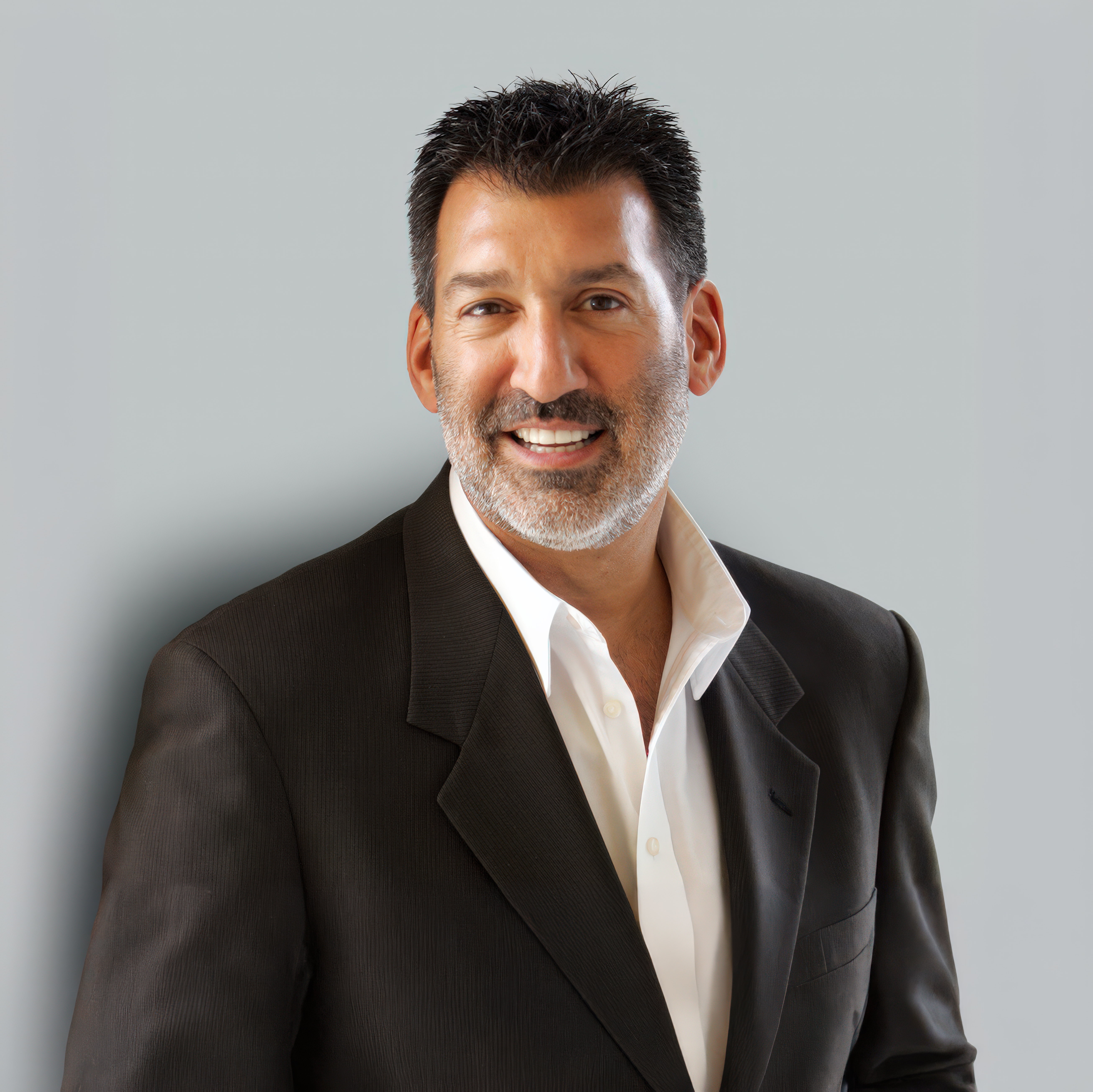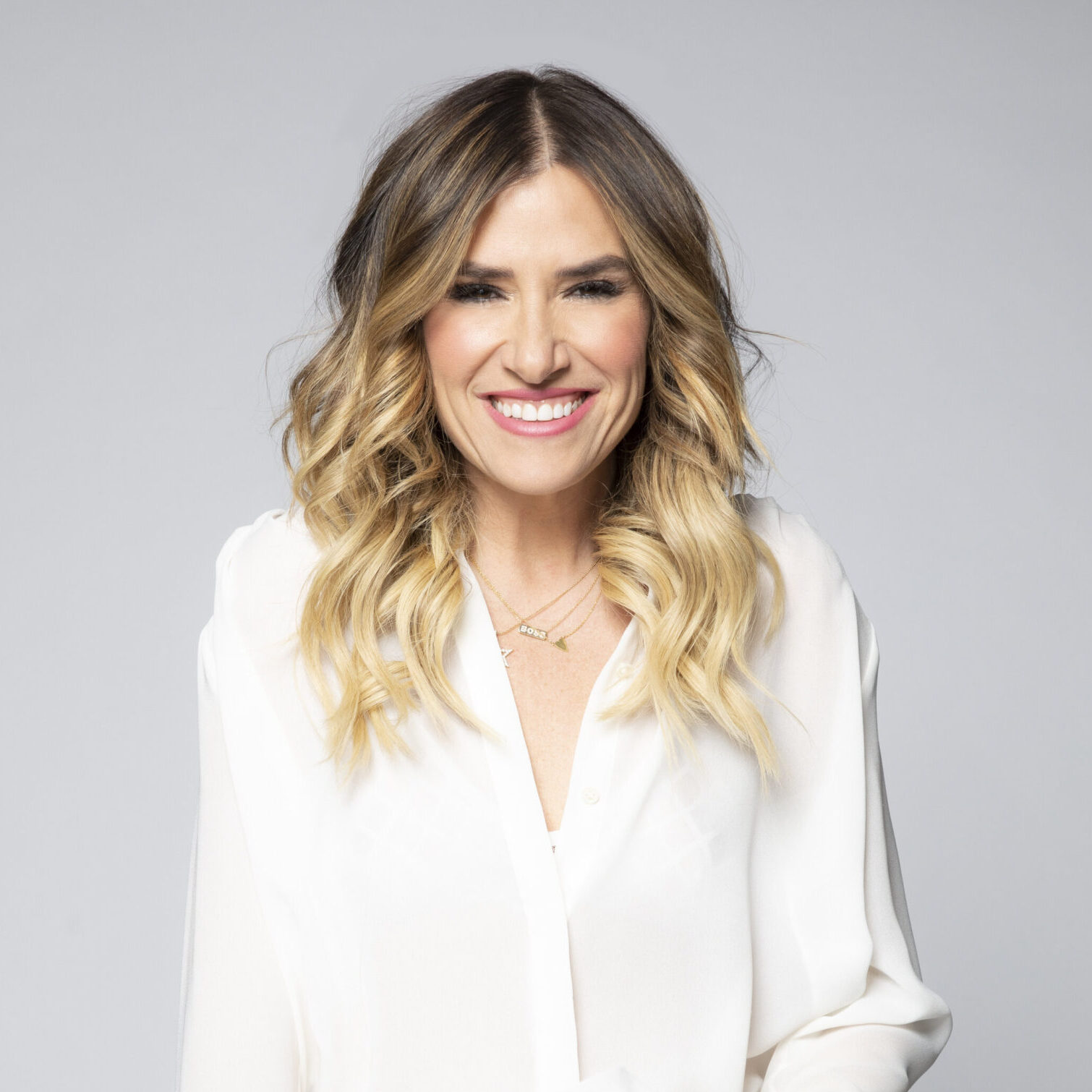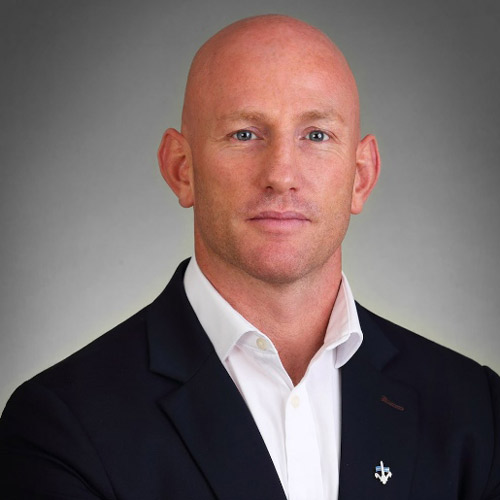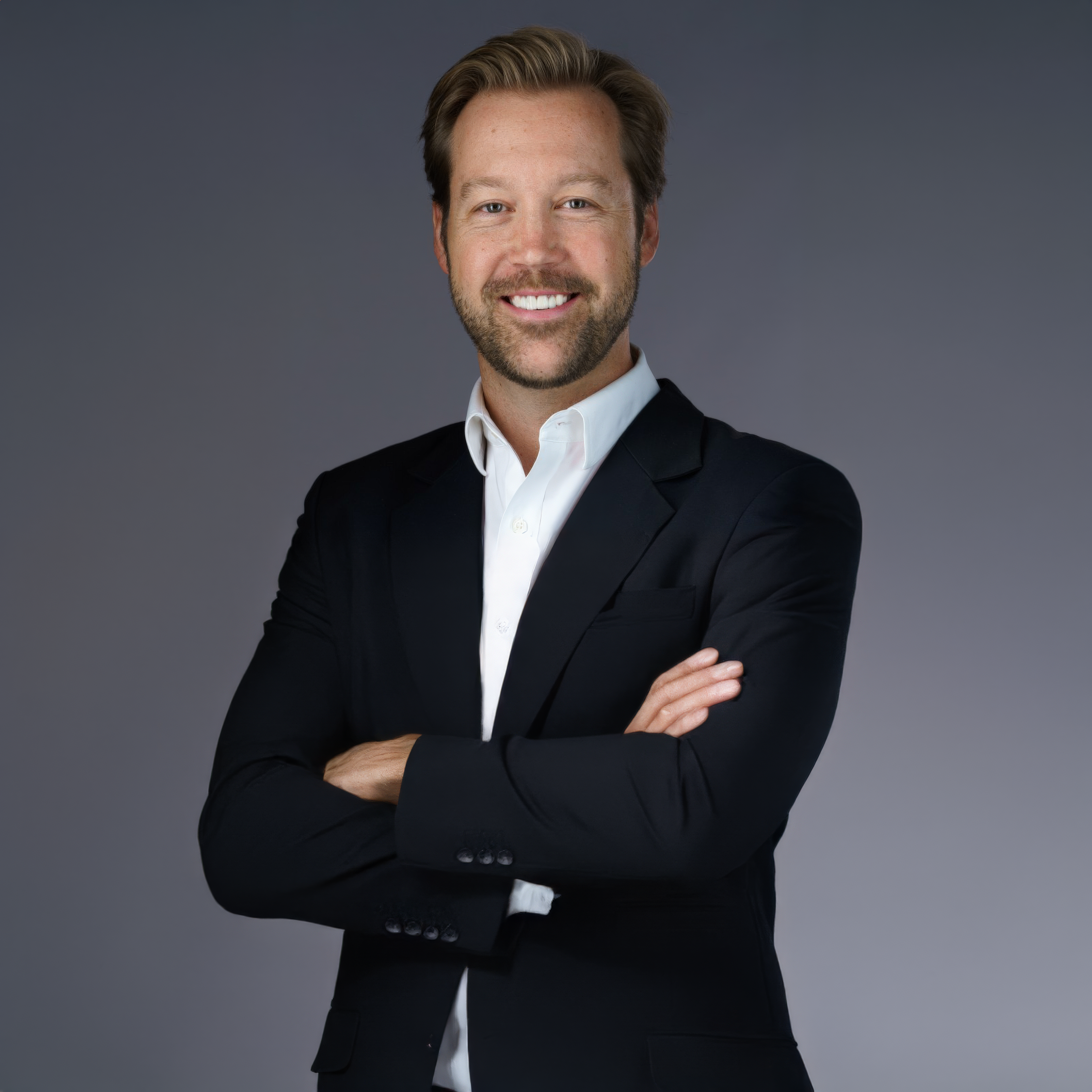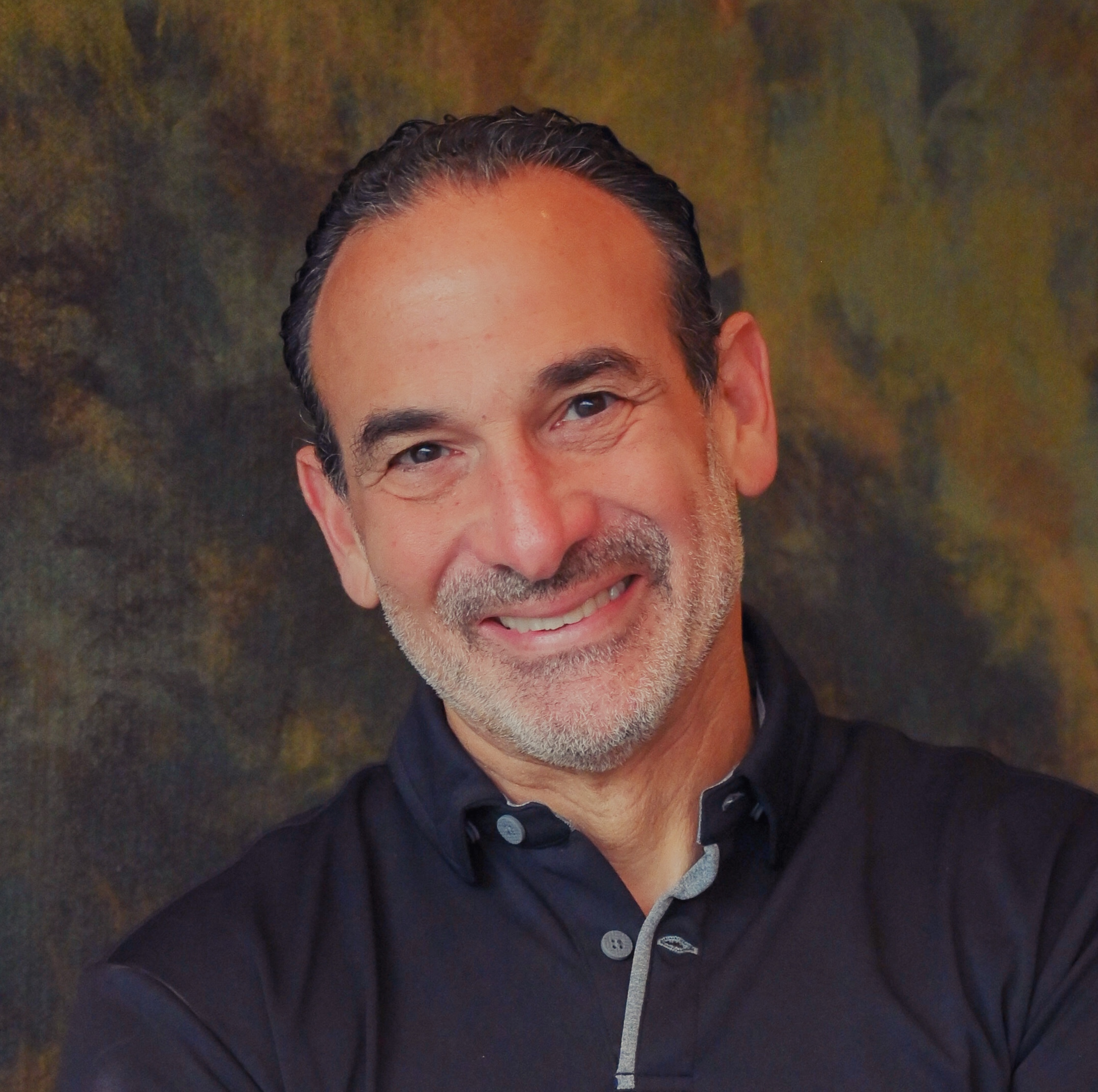RV (00:07):
Hey brand builder, Rory Vaden here. Thank you so much for taking the time to check out this interview as always, it’s our honor to provide it to you for free and wanted to let you know there’s no big sales pitch or anything coming at the end. However, if you are someone who is looking to build and monetize your personal brand, we would love to talk to you and get to know you a little bit and hear about some of your dreams and visions and share with you a little bit about what we’re up to see if we might be a fit. So if you’re interested in a free strategy call with someone from our team, we would love to hear from you. You can do that at brand builders, group.com/pod call brand builders, group.com/pod call. We hope to talk to you soon.
RV (00:54):
So a couple of years ago, I got a chance to speak at the global leadership summit, which is the large, one of the largest, if not the largest speaking events in the world. And then last year I was part of helping my friend, Jamie Kern, Lima, get to speak there. And she shared the stage with Michelle Poler, who you’re about to meet. And I have I’ve known of Michelle because she’s a very, very successful speaker. She is very loved and respected in our industry. Several of my friends like Jason Dorsey have met her and talked so highly about her and then shared the stage together a lot. And as I got to speak, I got to see her speak at GLS and we kind of became friends a little bit. And I just think she’s darling and has the coolest story. If you haven’t heard of her.
RV (01:39):
So she is kind of a, she’s the founder of a movement that’s called hello fears. She’s reached 70 million people with this movement. There’s, you know, she did a TEDx talk. She wrote a book called hello fears. She has spoken for huge companies, ESPN, Netflix, Microsoft. She’s been on the today show and featured in pretty much every major national media, but and he was, I just wanted to hear a little bit, I wanted you to get, to hear a little bit of her story of how she got started, and then maybe we’ll sneak a few tips from her about overcoming some of our fears and building our brands. So Michelle, welcome to the welcome to the show.
MP (02:20):
I was expecting some applause or something like
RV (02:25):
Dancing. We’re alive of it. You’d be dancing.
MP (02:28):
Yeah, exactly. I would be dancing, but I get the one.
RV (02:31):
Yeah, I love it. So you know, you’re from Venezuela, which I love that is wonderful. And, and I like have have a couple of friends from Venezuela is a, you are another one. Tell us how did this all get started? Because you were a little bit of a, I mean, this all started out of reluctance from you for, for you is how I interpreted it’s. Most people go, I want to become a speaker or be an author, and I’m going to write a book, but your whole story and start of your personal brand is like came from a completely different place.
MP (03:04):
Yeah, totally. I never in my life would have expected to be where I am today. Not even in my wildest dreams, because I had no idea that what I’m doing today was a thing was a possibility. So I didn’t grow up. Like you said, I’m from Venezuela. I didn’t grow up with speakers. Like never a speaker came to my school just to motivate us, you know, if there was a speaker, maybe it was like a mathematician or something like, you know, professionally in their area. And so I would, I had no, and then I didn’t, then I went to college for arts and there were no speakers also in my school that was in the United States when I moved here. I was 19 years old. I did my career here as an art director, graphic designer. And then I, you know, I, I worked at an agency, an advertising agency and they don’t invest that much.
MP (03:57):
I don’t want to you know, just, I guess, I don’t know every agency, but from what I’ve seen in advertising, they don’t invest normally that much in the personal growth of their employees. So there were no speakers in my agency when I was working there at YNR young and Rubicam. And so I was never exposed to this speakers. And when I moved to New York to do a master’s in branding at the school of visual arts, I, I was asked to do this 100 day project where we could choose anything we want to do for 100 days in a row. And it was like a series of exercises that we did that led me to understand that it was time for me to face my fears. That I’ve been a very fearful person, but mostly comfortable person my entire life, like I was achieving a lot of things. So I never really thought I need to get uncomfortable in order to
RV (04:52):
Cool assignment. It was a school assignment to do and do something for a hundred straight days.
MP (04:59):
Yeah, you can do anything. And you had to also share your project online day after day. Like it couldn’t be just something that you keep to yourself. It had to be somewhere on social media, you could decide where. And so I decided to use YouTube and face my fears. I decided to face one for your day, for 100 days, create a video for that and post that to YouTube. So it was such a big endeavor that even my professor was concerned. She’s like, I don’t think you should go this route. This is a lot of work and this is not even your thesis. And I was working full-time in advertising while I was doing my master’s. So I had too much in my hand and I still decided to go for it because I had a hunch. This project could change my life. I had no idea where this was going to lead, but in my mind, my goal at that point was to create a project where I could not only become of course, a braver person. Cause that was my main goal, but also where I could show all of my skills, my creativity, my design, my video editing my community building all of those skills. I wanted to put them into one big project. So then I could apply to jobs in branding showing this project that was like my goal, like the best that could happen for me was to get an amazing job maybe at Instagram or Google or YouTube, like a really cool brand. That was my, my intention.
RV (06:23):
I love that. So I didn’t piece that together that it was the college project and that you were you. Cause I noted. I mean, one of the things that I noticed, I was like, well, yeah, this is an amazing story, but the videos are amazing. And that’s because you were studying that one of the reasons, cause you were studying storytelling and visual design and editing. So that
MP (06:47):
I started editing videos for my honeymoon. Like when I got married, we bought a GoPro and I was like, I have to make the best video with this GoPro. So I learned from my brother who actually is a filmmaker. And he taught me everything. I know. So I was like, this is the perfect excuse for me to create one video a day. Cause I love video-making. And storytelling and branding and design and all of that. I just put it together and created this project called 100 days without fear that ended up leading me into speaking.
RV (07:22):
So you, you, how did it work? Like functionally, did you, did you live the hundred days and film it and then go back and edit it or did you live a day? Film it, edit it that night and post it.
MP (07:38):
Let me tell you what my schedule looked like. So I would go to work from 9:00 AM to 5:00 PM at my agency. Okay. In New York. And then from there I would go to my class from 6:00 PM to like 10:00 PM. Right. And so I would have a few times during the day to face a fear, it would be either very early in the morning. Like for example, one day I cooked something very outside of my comfort zone with a lot of boiling oil that I was, it was scary for me. And then, or I could do the lunchtime. That was the most popular time for me to go face a fear. So I was in my agency working alongside with all my peers, like my teammates. And then I’m like, be right back. I’m going to touch a snake or something. And so I would like go really quick to like central park, hold a snake, okay.
MP (08:26):
Pay the guy $2, go back to my work, keep working. And then I would go back home. I Reverend 10, 11:00 PM. And I would have to edit a video of what I, or, or I would use the nighttime. For example, I went by myself to a bar at night. So I would, or comedy show that I ended up doing standup comedy. So I would use one of those three times during the day. And then I would go back home, edit the video. Then I would do homework for my next day or whatever. I have left for my job and I was not sleeping, but I was on a high courage and excitement and living life to the fullest.
RV (09:03):
Wow. So how long did it, how long does it take you to edit one of these videos?
MP (09:08):
It was around maybe an hour and a half. It was like three minute videos. But yeah, it takes, takes a long time just to put re choose to write music. I started all my videos doing stop motion. So the, so it would say like fear number one. And it would be things that move by that by itself. And then I’m like, okay, I’m done doing stop motion. It only lasted three days. I’m like, I need to, to be able to do this in a quicker way.
RV (09:34):
All right. And so, so you, you would shoot these experiences. Most of them were pretty short, like a few minutes and then you would just come and spend like a couple of hours every night editing it and then you would post it and then you’d just go back to work the next day for a hundred.
MP (09:48):
Yes. For a hundred days. And whenever I could impose, for example, like it was a really busy day or I ended up facing a few really late or when people started to worry, they’re like, are you okay? Did you die facing your fears? Cause I’m doing scary things every day and I’m like, I’m fine. I’m fine. I just went to like to get hypnotized. And I had no time to go, sorry. So one day I would post two videos or during the weekend I would try to face more than two fears. So I have a little bit more so during the week I have more time, it was insane, but it was the best time of our lives. And I say our lives because I did it with my husband. He supported me since the beginning. We didn’t have kids at the time. And so he was like, let’s do it. I want you to become a braver person. I want you to be a braver mom one day for my kids. So he fully supported me and he faced my fears with me.
RV (10:37):
That is so crazy. So then you just made a list. Did you make a list of a hundred first and said, okay, these are the a hundred I’m going to do. And then cause like, did you have to travel for some of them or were they all in New York?
MP (10:51):
I tried to keep all of them in New York and some of them were upstate. So I would have to rent a car, maybe spend a night, something like that. But that’s, and then if I had any trips along the way, for example, I went to the how conference, you know, the branding conference. It was part of the school that I was like the school trip. So I face a lot of fears there. I was like, oh, this is a networking event. Like what can I do that is outside of my comfort zone? And so the way that I did it is I built a list of 20 things and then I couldn’t come up with any ideas. I was like, what, how am I going to start a 100 day project if I can’t come up with more than 20 ideas.
MP (11:31):
So I put this on Facebook, this was in 2015. So Facebook was like my biggest social media at that time. And I had no following. I mean, I was no one. I just had family and friends like there as my friends on Facebook. And so I posted there saying, Hey, I’m going to start a project where I’m going to face 100 fears. Can you suggest some ideas? And I think that’s the best thing that I could have done just because I started building community without realizing it, basically all the people that commented there. I had like around 60 something comments or more, I don’t remember. Everybody that commented felt like they’re part of this project since the beginning. So every time I would go out and face a fear that they suggested, for example, somebody said, you should go crush your wedding. You should go post nude in front of a drawing class. I mean, things that I know that never crossed my mind, I was like, yeah, it’s insane. So I was like, Hey, I did what you suggested. Here’s the video. So they felt like, oh, that’s so cool. I suggested something. She actually did it. And now I’m part of this. So they were the first ones to share my project and rude for me. And it was a really good feeling cause I was not alone doing this.
RV (12:45):
And when did you get the sense that this was taking off or like blowing up or cause there’s, there’s also a Ted talk that happens in here. But is that after?
MP (12:55):
Yeah, so it was, you know, it was one comment from a friend from college that she never reached out to me. And while I was doing the project, one time she reached out and said, you know, your fears, like your videos are making me a braver person. I’m daring to do more things at work. After I see you face your fears. And she knew me from college. So she was like, I remember how fearful you are. So I’m very proud of you. Thank you for inspiring me. And that comment made me realize that this project had a lot of potential. So I was like, this should be out there more people should know about this. And then one day out of the blue day, 40 of the project, it was picked up by daily mail in the UK. And they reached out and they asked for permission to publish my videos on their website.
MP (13:42):
And I was like, heck yeah, you can publish my videos, whatever you want, do whatever you want with my videos. That will be amazing. And so they published that and minutes later it was all over. It was every single website was sharing this and then contacted me like Huffington post CNN, Fox, all of them were like, we want to face fears with you. So, because I was in New York, it was really easy to just you know, get together with them some place and then go face fierce together. And that was pretty cool. Cause then it was all over the media and a lot of people started following the project. So I went from like 150 followers to 30,000. Wow.
RV (14:23):
Wow. That is so cool. So at the start of a, at the end of a hundred days, how many followers did you have? Like 30,000.
MP (14:30):
Yeah. Around that people that were like so eager to see what was the next year. And they were all really worried. Like what’s going to happen after it. Cause they’re like, we’re loving this project. We don’t want it to end. And I was so exhausted. I was like, I need this project to end, but I can’t continue facing one fear a day is taking over my life. Of course, one of my fears was quitting my job. So I didn’t have a job for the last, maybe 35 years, which was really helpful because I have more time to do this. I also graduated from my program, so I had more time to do this. And then the last fear was to speak at Ted TEDx. And so I had more time to prepare for that. It was not on the day 100. It was like a few weeks later. Cause that’s the date that the, you know, the event was taking place. And then I had a lot of people that they expecting to see what happened next.
RV (15:21):
So did you reach out to Ted? Did they find you? What, how that happened?
MP (15:26):
So when I started this project, I put TEDx as my last fear. And then I got so like the imposter syndrome selling me. Who do you think you are? Of course, you’re not going to go get into Ted who, you know, they’re not going to accept whatever. And so I removed it and I was like, yeah, I’ll forget about that. And when the project went viral, I was like, maybe I should consider reaching out. Maybe they will listen because I am all over now. And I know the impact that this project is having on so many people. So my husband found out who the organizer was for TEDx Houston and he reached out and through LinkedIn and this guy responded and then he was like, I love your project. Yes. I want you on our stage, but are you from Texas or related to Texas in any way?
MP (16:16):
Cause we won local speakers and I was like, I’m not I would love to, but now I’m not. And then he’s like, I’m sorry. And then I wrote a huge email listing, all the reasons why I should be on his stage, even though I’m not from Texas. And two weeks later he wrote back saying, okay, Michelle you’re in. And I was not only in, I was one of the highlights of the day. And it was like a really amazing experience to see that you can get the things that you want if you dare to really go after them and ask for it and you know, be persistent. Huh?
RV (16:51):
I love the smell. And so I think, but in your, your Ted talk has several hundred thousand views
MP (16:57):
Almost like half a million.
RV (16:59):
Yeah. So, which is awesome. But I think one of the, one of the things is I think people go, oh, Michelle went viral and that’s how she started her career. Which in which in some ways is true based on what you’re saying, but it’s in some ways also not true. It wasn’t like you had millions of followers or 10 million views on a Ted talk or something. So how did you then kind of parlay it? Like as we kind of go, okay, now we move this at some point, the light bulb goes on in your head like, Hey, this could be my business. I should do this. And you, you leveraged off of that and you turned it into what is now a really phenomenal business.
MP (17:41):
Yeah. Yeah. So exactly. It’s what you’re saying. It’s not like I blew up and suddenly brands all over are me. It’s not like it was just a virality wave that I was able to like capitalize for like know how to really take advantage of that for my next stage. So the question I made myself is what exactly resonated with people about this project and how can I turn that into something bigger? And so we met Jason Dorsey, as you mentioned at the beginning of the podcast that day, he was speaking also at TEDx and he saw me and he’s like, Michelle, you should be gone a speaker at call me. And so we call him and he gave us the tips on how to start, basically build a website, build a demo reel, what’s your audience? What are your, your talking points, develop a 45 minute talk, things like that.
MP (18:35):
And so we started to work so hard on that. And then we started to pitch this talk to company. So I listed all of the friends that I have that work in different companies like corporations. For example, I have my, one of my best friends working at Google. One of my friends, someone that I know of actually works at Facebook at Netflix. So I started calling people, do you know anybody that works here or there? I wanted my resume to have like this amazing companies and logos that I admire so much. And we started pitching this, showing them my TEDx and then showing them what I recorded myself, presenting at Google and all of these different companies. And that’s how we started building the speaking business from the ground up.
RV (19:16):
And that, what year was that? What year was that?
MP (19:18):
2016.
RV (19:20):
I mean, that’s pretty crazy that from in the year 2016, you built like your first demo video. And then by the year 2021, you were speaking on the biggest, the biggest speaking stage in the world. I mean, five years, that’s pretty incredible.
MP (19:36):
It really exceeded our expectations. Like we never imagined this would go this far, this fast. And also for example, my husband was still working in finance when we started and he was helping me develop my presentation. He would practice, reach out to clients and bureaus and all of that, but he was still with his full-time job because I was not working. Like I was not making any money. And then one day he called an amazing person that represented or actually still represent brunette brown in the speaking industry. And he was like, Hey, I I’m trying to help out. My wife here develop a speaking business. This is her demo reel. This is her TEDx. What do you think it was at his job in his office having this phone call with this person called Michelle and she saw this and she was like, you should leave your job and represent your wife. And you both should work full time on this because Michelle has an amazing potential. I actually I’d love to help. So she started helping me also. And she’s still representing me today and that’s been one of the best things that happened in our lives. So my husband quit his job in finance and worked full time with me doing
RV (20:48):
This. And when you guys started, so you start this as like a little social project and you do a Ted talk, then you basically create a website, some program descriptions, you had a video editing, which is a huge, that’s a huge asset to have had it. And but then you basically just make a list of all these companies you want to speak at. And then you start calling friends and family and saying, Hey, do you know anyone who works at this company? And then you just said, they, you find out who books the meeting, and then you say, Hey, I’d like to come talk. Here’s my bio, here’s my program. And here’s my demo video. And that, and then, then that’s how you started.
MP (21:26):
Yeah, yeah. They would say, okay, I’m not in charge of this, but I know the person that organized an event last year, let me reach out. And then it would go from person to person until we find the right one. And then of course I started doing events for free for this companies. I wanted to build my resume and then they started hiring me back and paying my fee to, you know, to bring me back to all their different offices. That’s what I did with Google and all of the other companies. And I think it was just a lot of self-confidence that got me there. Like when you know that what you have has so much value and that is so unique and authentic and original, and that you’re the right person to be delivering this message and, and talking about this things and inspiring people, then I think, you know, you have half the battle won because you believe in yourself. And I actually have this sticker right here that I love that I created says, when you believe in yourself so much, you make others believe in you as well.
RV (22:24):
I love that. I love that. That w and, and so basically you just start calling on these companies, you start speaking for free, then they say, Hey, we’d love to have you come back and do something. And so then it’s like, what’s your fee. And then you have a fee and then you do that more. And people see you and they say, will you come speak at my thing? And I have a friend, and then you raise your fee and you just basically been in that cycle for like five years until you end up getting a call from the global leadership summit and say, Hey, will you come, will you come speak on, speak on our stage? And, and, and so you still book gigs and in primarily, you’ve also been very, very focused on keynotes, right? Like your core businesses. You’re a speaker.
MP (23:07):
Yeah. Actually when I started, I had so many ideas. I was like, I want to do merch. I want to do YouTube. I wanted to speak. And I also want to create a company. I want to do all these things. And then my husband is very strategic and that’s really good for me cause I’m all over the place. And I have so many ideas and I want to do them all, you know, typically like the creative personality. And I’m like, yeah, I could do this. I can do that. I could do that. But then he’s like, Michelle, let’s focus on the one thing that can help us leave our jobs and actually, you know, make a living out of this. So it’s not YouTube, it’s not merged. It’s not any of those things is speaking. So let’s do this, let’s focus on one thing. And then that’s lesson that I keep you know, putting into practice until today, every time that I’m going to commit to one project, it’s just one project at a time. And so by doing that, we were able to really get this beam to the next level. And once we were very comfortable with our new career as speakers, then I started also doing social media. I started, I wrote my book, hello fears and, and doing all the other things I did merge. And now I have a baby.
RV (24:18):
That’s the, I
MP (24:19):
Did the baby.
RV (24:21):
Yep. Once you have a baby that you, you won’t do much for five years. You’ll. You’ll, you’ll take care of that, that baby. That is so great. Well, so this has been awesome, Michelle. I, I, I, it’s so cool to just hear, hear your story about how this all happened. And you probably don’t realize this, but you’re reinforcing like every single thing that we teach to our clients and members in terms of how, how to go about doing this and on that, can we talk about fear for a second? Can we do like more of like a little coaching coaching session just for a minute. And by the way, the book is called, hello fears. If you, you didn’t pick that up, that’s the name of Michelle’s book? So on the topic of overcoming fear, this is something that I think personal brands have to face a lot because it’s like, oh yeah, I want to go speak for Google, but I’m scared.
RV (25:16):
They might not like me. I might not get ahold of them. They might reject me, or I might want to reach out to speakers, bureaus or literary agents, or I might want to get on television or even just get written up in some article and there’s fear there, or for a lot of our clients, it’s even just scary to get on camera and say, you know, I want to post a, a 62nd video, which sounds really simple, but, but you go, man, I can find a hundred reasons not to press record on my phone. So why do you think we have some of those fears? And, and obviously you had a little bit of the benefit of doing a hundred days of facing fears. And so you kind of rolled off of that momentum in this, but do you have any tips for people that are struggling with that kind of thing?
MP (26:01):
I think it’s so sad that the main reason why we don’t achieve our goals and our dreams is ourselves. Like it’s ourselves telling us for some reason, like we’re not worth it or it is not worth pursuing. So fear stops us for so many reasons, for example, and I, I talk about this also in my program. I’m like the first thing I tell people is fear stops us. Why? And so I give the example of when I wanted to lunch my online program, all the different reasons, for example, what if somebody else is already doing a program about branding and you know, why would they choose me? What if people think that I only want their money? What if I, all those what ifs, right? What if it’s not as good as people think? And then we listen to that and we stop ourselves from doing the things that we actually want to do. And if you ask me, what’s the main fear people have, what will you say? What do you think is the main fear people have
RV (26:55):
That they won’t be good enough?
MP (26:57):
I think the main fear people have is disappointing. Other people that’s one of the main things. And so we stopped doing so many things because we don’t want to be perceived as something we don’t want to disappoint other people. So and it’s such a shame because we need people’s value. We need their value. And for that, we need them to have the courage, to put their valley out there, to shut up like their imposter syndrome and all those ideas. And I can tell you a couple of things that are helpful, for example if your message can help three people, can you think of three people in your life that have asked for help in what, in the area that you teach? You can also help 3000 people. And what I mean by this is that if you know, more than other people, about a certain topic, you are qualified to do that.
MP (27:49):
That’s one of the main things that we tell ourselves, I am not qualified because for example, you want to talk about any topic like even parenting? No, there are some people with PhDs that talk about parenting. If you are a parent, you can talk about parenting to anybody that is not a parent because you know, more than people that are not parents do. Now I have a nine month old baby. I know more about babies then Michelle, a year ago. And I would’ve loved to hear this. Michelle talk about babies, you know, like, so if you do, if you know more than a group of people, you are qualified, that’s it, that’s the main thing. Yeah. You don’t need to be the best one, but it’s enough. And let me think and just try to think, well, the, the thing I teach everybody in my, in my talks that you heard is what’s the best that can happen seriously. If you dare, if you choose to go out and record that 60 minutes, 62nd video, what’s the best that can happen. What if that can lead you to accomplish those things that you’ve been wanting for so long, but you keep listening to all your excuses out there. And that is still focusing on the rewards is the main thing that will help us take action when we’re in that spot.
RV (29:02):
And, and, and it’s just that shifting it from what’s the worst thing that can happen, which is what most of us think about to, what’s the best thing that can happen. And in that moment, when you’re kind of like, Ooh, I want to do it, but I’m scared. This just like that, that one little shift is a catalyst for doing, for, for actually doing the thing that you want to do.
MP (29:24):
In my case, I promised myself that I was never going to allow my fears get in the way of my treats. That’s the simple, not as not so simple premise, I guess, or line thing that I promised myself. And so every time I want to accomplish something and I see, and I realize that my fear is the one thing getting in the way. That’s when I have to go out and do it and forget about my fear and think what’s the best that can happen and hope for the best. And most of the times, the only things you regret are the ones that you didn’t do.
RV (29:58):
And so the moment you, so you just kind of have like this mental alarm in your head that says, I want to do something, but I’m scared. And so whenever you feel that it’s like, okay, I have to do it now.
MP (30:10):
Oh yeah. Yeah. Because I see the world in two different, like in this context, every decision that you choose is either a comfort based decision or a growth based decision. So whenever we’re in front of any situation, you have two options. Are you choosing growth or are you choosing comfort? And it doesn’t look the same for everybody. So very personal thing. So you have to think which one is the scariest thing to do right now that most of the times is the growth option.
RV (30:44):
And then you just go for it.
MP (30:47):
You work on it, you work on yourself first. I think that’s the most important thing, working on yourself, working on your confidence and when you’re ready, then you go for it. But it is important to work on ourselves. People, sometimes they don’t want to go to therapy. They don’t want to learn new skills. They don’t want to work on themselves. And then they pray. They want to achieve certain things. I think it all works. It all starts with you.
RV (31:11):
Hmm. That’s interesting though. So you’re saying that like, Hey, okay, do you feel this fear? You want to do it? And then it’s, it’s not necessarily just go out, just jump in and do it. It’s like, okay, what, why do I need to learn in order to feel equipped to, to then go do that thing.
MP (31:28):
The imposter syndrome to be real, you don’t want to be an imposter. And so in order to delete, like raise the imposter syndrome from the equation, you actually need to become the person that you would admire, right? You can’t teach about finance and B being broke. You, you can teach about achieving your dreams. If you have not achieved your dreams. I think that first you have to become the person that you would admire. And then you can teach others about that. But also there’s part of ourselves, like our fear telling us that we’re never there and it’s never enough. You know, and that, yeah. So it always telling you, you need to read one more book. You need to do one more course. No, you have to stop. And also think, okay, I think I am at this point where I can teach people what I know. And you can’t just stay on the loop of doing another course, another book, because then you will never put everything you’ve learned into action.
RV (32:24):
Is there any, you have any tips for identifying the difference there between where you go, when am I just, when am I actually going? Okay, I’m equipping myself so that it’s not imposter syndrome versus I’m using it as something that we call creative avoidance. That’s a term for my first book where you’re like, you’re using it as a really a procrastination mechanism.
MP (32:49):
I think that I don’t like to compare myself with other people, but it’s okay to compare yourself with yourself. So maybe think about yourself a year ago. Where are you? Are you still kind of in the same or you, you say, whoa, I wish I could tell this things that I know now to my year ago, self, if there are some things that, you know, you’re like my, my one year ago, self would love to know this things. It would have made his life easier. Then I think Europe one where you can share what you know with other people is yes, you can always know more and you know read more and all that, but then you have to understand what and any it’s okay to start when you’re not ready. Right. That’s one of the things that, that people say, I love this quote from, I think Reed Hoffman that says if your first product doesn’t embarrass you, you launch too late.
MP (33:42):
I love it. I’m very much like I have an idea. I, if I feel I have what it takes, I started and I started trying it and then people will give you feedback. That’s also really valuable. So just maybe try it with a small group of people and see the result there, see the impact. And then you will see, yeah, definitely this is ready for a larger group. Or maybe I should work on it first because for example, my talk, my keynote presentation w the one that I started six years ago is very different from the one that I am giving today. But if I would have waited six years to make it perfect to launch it, you know, I would be nowhere. Cause I just needed all the feedback, all the things that went wrong, all those things to just build the perfect talk that I feel right now is at an amazing level where I’m so confident about this, but it took me six years to get here.
RV (34:34):
I love it. Well, the book is called, hello fears. This is Michelle Poler. You’ve been listening to Michelle. Where do you want people to go? If they want to like sync up with all the stuff you have going on,
MP (34:43):
I would love for them to join me on my community on Instagram. So hello fears on Instagram. That’s where you’ll find everything about me and we’ll just keep in touch. So just let me know that you listened to this podcast so we can connect there.
RV (34:57):
I love it. Well, we’ll link up. We’ll link up to that. As well as your website and the book and everything thanks for helping us overcome our fears. Thanks for modeling. It. It is inspiring and super helpful to actually like get inside your, your mind a little bit about how you push yourself past cause you had so much, so much experience doing it. So keep inspiring, keep doing what you do and we’re, we’re we’re pulling for you. We’re we’re fans. We believe in you. Thank you
MP (35:24):
So much. My pleasure to be here.

